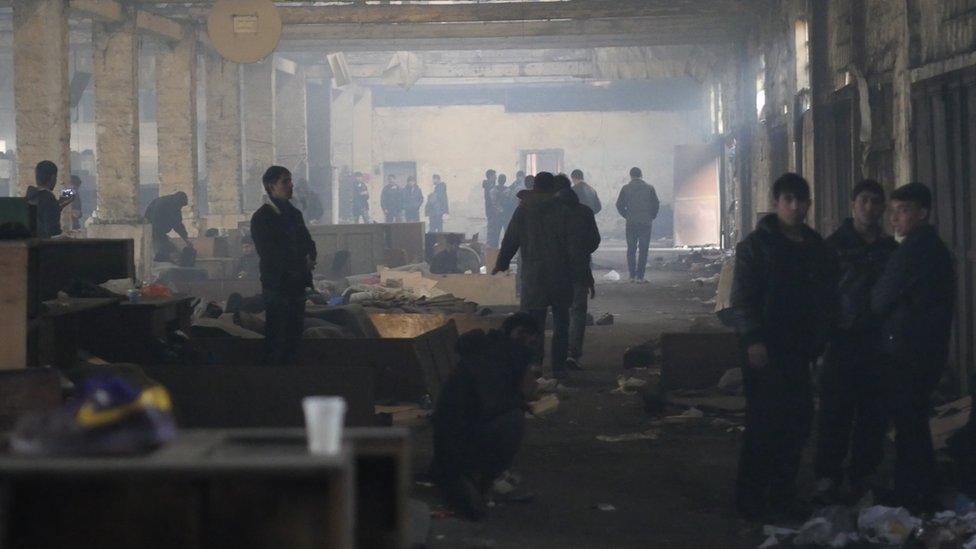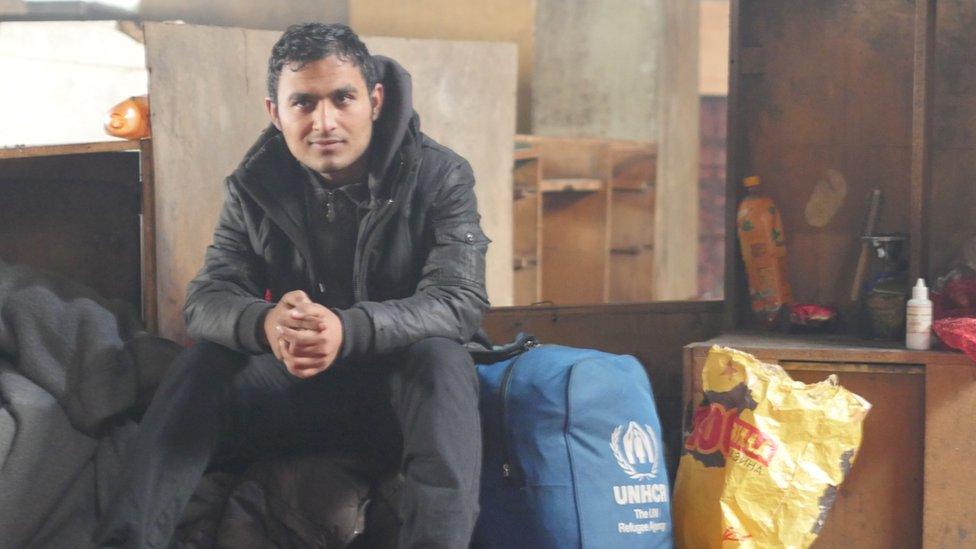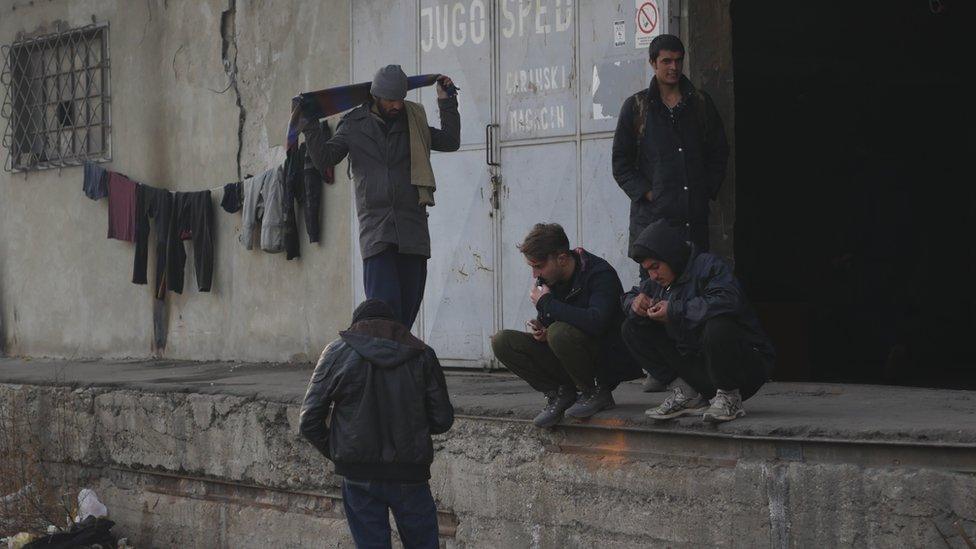Serbian attitudes harden as migrants gather once again
- Published
Serbia refugees face cruel winter
The so-called Balkan Route may have closed officially in March. But people are still making their way along the peninsula towards western Europe - only now without the protection of the authorities which had laid on transport to keep them out of the hands of traffickers.
Belgrade - bypassed last year as trains and buses took people relatively smoothly from border to border - has once again become a gathering place.
Camping in the small park between the main bus and train stations is no longer possible, as the grass areas have been cordoned off. Instead, derelict railway buildings are providing improvised shelter for hundreds of people.
Conditions are miserable. Fires burn day and night, filling the gloomy spaces with acrid smoke. But with temperatures dipping well below zero overnight, there seems little alternative.
A lack of even basic sanitation adds to the olfactory onslaught.
Most of the people here are men - though aid agencies say there are significant numbers of teenagers among them, some of whom would be classed as unaccompanied minors.
"No-one is helping us here," says Naeem, who says he left Afghanistan because of the Taliban. "There are too many problems here - no toilet, shower or water."
"Nobody wants to live here - we're just waiting for them to open the border," says Habib, a Pakistani man who adds he may also "go forward with a smuggler".

Migrants in Belgrade railway station say they have no-one to turn to but traffickers

Aid agencies have been instructed not to help

But desperate migrants say they will wait it out until the border opens
Serbia received international plaudits for its handling of the refugee crisis last year. The humane and compassionate approach of its authorities and general population was in sharp contrast to the rhetoric and policies of neighbouring Hungary.
But the demise of the Balkan Route appears to have hardened attitudes. Anti-refugee graffiti has appeared on city centre walls. And the government has asked aid agencies not to provide clothing or hot food in case it encourages people to stay in Belgrade city centre.
"There's been gradually declining care from the public," said one aid worker at the railway station, who did not want to disclose her full name or organisation.
Help conditional
"I would rate these as some of the worst conditions you could live in. You're living in trash and it's getting freezing here. I don't think it will be long before somebody dies."
The government insists that it can accommodate people in its official reception centres - provided they apply for asylum in Serbia.
"When they're in the centres they are provided with free meals, a warm room and medical help," says Ivan Miskovic of the Refugees Commissariat.
On one point at least, the authorities and the aid agencies are in agreement: the weather will be a key factor in what happens next.
"I think this problem will end soon," says Mr Miskovic. "When the temperature drops below zero it will be unsustainable to stay in the city centre."